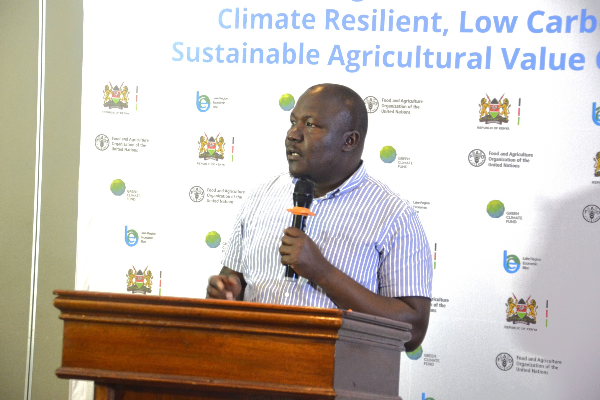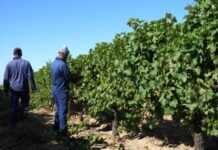
A new initiative tackling the growing threats of climate change and unsustainable farming practices has been launched in Kenya’s Lake Region Economic Bloc (LREB), where most communities depend on agriculture for their livelihoods—now increasingly vulnerable to climate shocks.
The project aims to promote climate-resilient and low-carbon farming methods, improve access to financing, and strengthen collaboration among stakeholders to enhance food security, raise farmer incomes, and build a more sustainable agricultural system.
Officially launched in Kisumu County by the Food and Agriculture Organization of the United Nations (FAO), the “Transforming Livelihoods through Climate-Resilient, Low-Carbon Agricultural Value Chains Project” is being implemented in partnership with the Government of Kenya and the LREB.
Backed by funding from the Green Climate Fund, the Kenyan Government, the Danish Government, and FAO, the six-year initiative will target six vital agricultural value chains in LREB counties: dairy, coffee, tea, poultry, fruit trees, and African leafy vegetables.
Speaking during the launch, FAO Representative in Kenya, Nyabenyi Tipo, said that in addition to promoting diversified production systems that enhance food security, the project will help bridge serious financial gaps in climate mitigation and adaptation investments across the country.
“Implementation of this project will focus on sustainable intensification, diversification, youth engagement and strengthened cooperatives for impact,” she said, emphasizing that, “Sustainable intensification is crucial for addressing climate change as it aims to increase food production on existing agricultural land while minimizing environmental impacts.”
Benefits of the project in Kenya
Valued at $50 million, the initiative will strengthen agricultural value chains across the Lake Region Economic Bloc, directly benefiting more than 2.7 million people—half of them women.
Implemented in collaboration with Agriterra and the Danish Government, the project will promote low-carbon and climate-smart farming approaches.
The LREB, a densely populated region, faces rising food insecurity and livelihood risks due to climate impacts like higher temperatures, erratic rainfall, and flooding.
More than 143,000 farmers—both men and women—will be supported with training and assistance to adopt climate-smart technologies and practices, enhancing their resilience and boosting household incomes.
Through engagement with cooperatives and private sector partners such as financial institutions, the initiative will also expand access to finance and markets, support sustainable land management across 30,000 hectares, and generate up to 3,000 new jobs. This comprehensive strategy is expected to catalyze a paradigm shift toward sustainable, low-carbon, and climate-resilient agriculture in the region.







